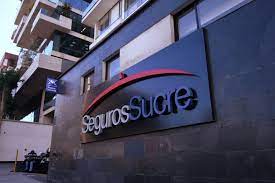U.K. Reinsurance Bribery Scheme — the Critical Role Played by the Third-Party Intermediary (Part II of III)

As I always say, the factual underpinnings of every FCPA enforcement action provides important insights into bribery schemes. At the core of every scheme is the misappropriation of money from the company coffers for improper uses. To the extent a company has weak financial controls and is at risk for internal fraud, such risks may translate into anti-bribery risks depending on its specific corruption profile — i.e. nature and scope of interactions with foreign officials.
Tysers insurance Brokers Limited (“Tysers”) and H.W. Wood Limited (“Wood”), two reinsurance brokers participated in a corrupt scheme to bribe Ecuadoran government officials. Between 2013 and 2017, Tysers and Wood agreed to pay bribes totaling approximately $2.8 million to the then-chairman, Juan Ribas Domenech (“Ribas”), of two Ecuadorian state-owned insurance companies, Seguros Sucre (“Sucre”) and Seguros Rocafuerte (“Rocafuerte”) and three other Ecuadorian officials to secure valuable contracts with the state-wned insurance companies.
Tysers was acquired by AUB Group Limited (“AUB”) in September 2022.
The specific bribery payments were paid to bank accounts in Florida, Panama and Switzerland and arranged through in-person meetings and email communications. Tysers paid $20.3 million and Wood paid $7.9 million in commissions and premiums. Tysers retained commissions equal to $10.5 million and Wood retained commissions of $2.3 million.
At the center of the bribery schemes was a third-party intermediary which maintained was registered in Panama and Ecuador, and operated in Miami, Florida, and assisted reinsurance companies. Esteban Eduardo Merlo Hidalgo (“Merlo”) operated and controlled the intermediary company. Luis Lenin Maldonado Matute (“Maldonado”) was the president of the intermediary company. Cristian Patricio Pintado Garcia (“Pintado”) was the general manager of the intermediary company.
The reinsurance business assumes certain risks (all or a portion) for insurance companies. Tysers, as a reinsurance broker, collects the premium due from the insurance company to the reinsurance company, and is typically paid for its services by retaining a portion of the premium as a commission.
Wood retained the intermediary company as the “producing agent” in late 2013 and a “placing broker” in January 2014, to assist in securing reinsurance contracts with Ecuadoran government entities Secure and Rocafuerte.

The intermediary company introduced Tysers and Wood to Ribas, the Chairman, and other Sucre and Rocafuerte officials soon after Ribas assumed the position as chairman. During the course of the scheme, Merlo and Ribas met in person in Miami, Florida to discuss Tysers’ and Wood’s bribery payments. In exchange for the bribery payments, Ribas directed two government officials responsible for Sucre and Rocfuerte to direct business for the benefit of the Tysers, Wood and the Intermediary Company.
Maldonado engaged in text messages with employees at Tysers and Wood confirming such arrangement. In the messages, Maldonado referenced himself, Merlo and Pintado as being part of a team with Ribas and two other government officials, who were paid bribes in exchange for business contracts awarded to Tysers and Wood. The three persons from the intermediary company arranged and conducted meetings in Miami and elsewhere and coordinated bribes through text messages among the various parties. The intermediary company paid bribes by making payments to bank accounts held in the Ecuadorian officials’ names in Miami, Panama and Switzerland that were in the names of third parties and nominee account holders for the benefit of the government officials.
The bribery participants exchanged text messages on a range of subjects aside from bribery arrangements. In particular, they used coded language to refer to each other, and to ensure that the parties evaded company compliance requirements for payments for travel by the Ecuadorian officials, shielding information from Sucre’s auditors, and allocation of payments to ensure that “commissions” were used to “solve problems local” in Ecuador.
The factual statement outlines the initial arrangements with the intermediary company and the importance of having a “local” partner as part of the effort to secure business with Sucre and Rocafuerte. The intermediary company leveraged this requirement to secure an updated agreement to represent Tysers and Wood.
After Ribas was named the new Chairman of Sucre and Rocafuerte, the intermediary company “creates for [the intermediary company, Tysers and Wood] a good opportunity to participate actively in the placement of reinsurance of public companies again.” The intermediary company noted that Ribas “maintains very good professional relationship and friendship with leading Directors and Partners of [the intermediary company].”

In December 2013, the intermediary company orchestrated the award of a Rocafuerte policy with Tysers and Wood as co-brokers. The intermediary company demanded a higher portion of the commission than originally proposed by Wood in order to pay key Ecuadoran officials. Tysers and Wood agreed to this increased cost as needed to maintain good relations with the government officials and to secure future business.
From that point going forward, the intermediary company set 25 percent as the portion allocated to pay local government officials. This arrangement set off an internal dispute among Tysers employees that further confirmed the nature of the bribery scheme. Almost a year later, Tysers agreed to a 30-70 percent split with the intermediary company for certain Ecuadoran government insurance business where a broker may not be involved.
Some of the bribery payments were disguised by the assistance of a financial adviser who provided fake investment contracts as a cover for bribery payments made to various bank accounts in Panama, Miami and Switzerland for the benefit of Ribas and other government officials.















